This
post was originally published on
this siteOriginally posted at: http://www.nerdfitness.com/
There are a million and one diets out there.
A million and two if you count your mom cutting the crust off your sandwiches as a kid. Or as an adult. I’m not judging.
With all these available options, picking the right diet is tough.
And at some point in your search, you stumbled upon the Military Diet….which HAS to be amazing.
Come on. It’s a diet, so it helps people lose weight. And folks in the military are super fit, which means the Military Diet must be great for quick weight loss.
Even better, the whole diet only lasts a week!
Surely this is a recipe for success, right?
Not so fast there, cadet!
Although this diet is crazy popular thanks to, sigh, the Kardashians (I promise this is the last time you’ll ever hear their name on Nerd Fitness), we’re here to offer a very different opinion than what you’ll find out there on the internet.
Depending on how long you’ve been reading Nerd Fitness (if today is your first day, welcome!), We’ll give you the truth, the whole truth, and nothing but the truth on this trending diet.
And of course, gifs and jokes.
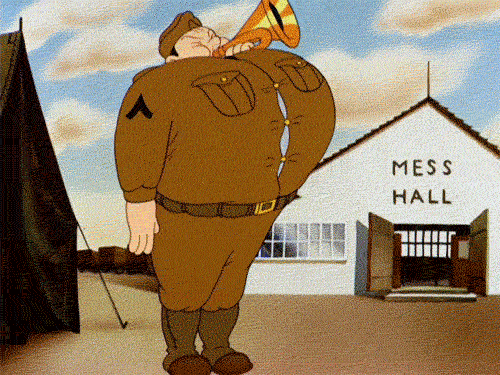
So let’s dig into the Military Diet:
- What the #$%! is it?
- Should you drop everything and try it?
- Are there any better recommendations out there?
Now step in line!
What is the MIlitary Diet? How does the Military Diet work?

If the Military Diet could be described in two quick words, those words would be “short term calorie restriction.”
Crap, that’s four words.
Ahem.
The diet focuses on ruthlessly cutting out calories in order to spur weight loss. There are some claims out there that you can lose up to ten pound in one week on the Military Diet. Which would be impressive – and should also be setting off your skeptical spidey-senses.
So I can understand your curiosity, recruit.
Now you’re thinking: “What exactly does ‘calorie restriction’ look like Steve?”
How about one meal consisting of just a single piece of bread, a half cup of tuna, and some black coffee.
That’s it. If you ask for more food you’ll be forced to climb a rope.
The Military Diet is broken into two stages, one for three days and the other for four.
- 3-day plan on the Military Diet. For three days, breakfast, lunch, and dinner is picked out for you. You get this meal only soldier, nothing more! Forget about snacking. For three days, every single crumb is accounted for. I’m only slightly exaggerating. And these three meals only add up to 1,000 calories per day. Ouch. That’s not much chow.
- Four days of leave. The Military Diet does go easy on you after the three days, with four days of slightly more food. And by that I mean 1,500 daily calories. How generous. You’re on your own on what to eat for these four days, with the only guidance being to “eat healthy” and keep it at “1,500 calories.”
Three days on, four days off. You repeat this three day and four day rotation until you reach your ideal weight. That’s the Military Diet in a nutshell.
Okay, you probably want to know, to the crumb, what you get to eat on the Military Diet? Sure.
But it ain’t pretty.
What does the Military Diet plan look like?
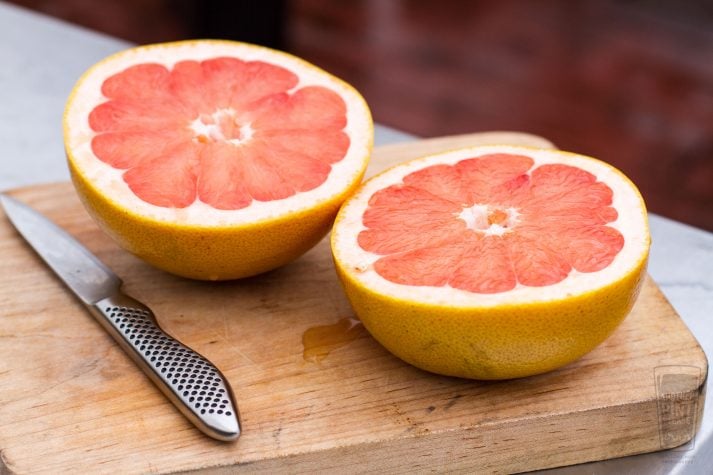
As I mentioned, the Military Diet provides strict orders on what to eat for three days. Your mission looks like this:
DAY 1
Breakfast:
- 1/2 grapefruit
- 1 slice of toast
- 2 tablespoons of peanut butter
- 1 cup of coffee or tea
Lunch:
- 1/2 cup of tuna
- 1 slice of toast
- 1 cup of coffee or tea
Dinner
- 3 ounces of any type of meat
- 1 cup of green beans
- 1/2 banana
- 1 small apple
- 1 cup of vanilla ice cream
DAY 2
Breakfast
- 1 egg
- 1 slice of toast
- 1/2 banana
Lunch
- 1 cup of cottage cheese
- 1 hard boiled egg
- 5 saltine crackers
Dinner
- 2 hot dogs (no bun)
- 1 cup of broccoli
- 1/2 cup of carrots
- 1/2 banana
- 1/2 cup of vanilla ice cream
DAY 3
Breakfast
- 5 saltine crackers
- 1 slice of cheddar cheese
- 1 small apple
Lunch
- 1 egg (cooked however)
- 1 slice of toast
Dinner
- 1 cup of tuna
- 1/2 banana
- 1 cup of vanilla ice cream
If you find yourself thinking, “That’s not much for rations, Steve.” You’d be right.
Not only that, but I bet your normal serving of peanut butter is significantly larger than 2 tablespoons. Yikes.
But I’m getting ahead of myself here.
I’ll keep filling you on the details and then share my real opinion at the end here.
Substitutions? Some websites will guide you through substitutions to stick with in case you’re vegetarian or lactose intolerant, etc. Think tofu dogs for hot dogs. But you are told to match calories exactly for replacement, since the name of the game here is restriction.
For the most part however, substitutions are discouraged on the Military Diet.
What about after these three days? If you haven’t gone AWOL, you get a pass for four days. Some websites suggest you can enjoy a meal of shrimp fried rice or a black bean burger on your leave. To stick with the strict Military Diet strategy, you would keep it to 1,500 calories for each 24 hour period.
Eating only 1,000 calories a day is really difficult.
1,500 isn’t exactly easy peezy either.
Is this actually worth it?
Will the three day Military Diet help me lose weight?
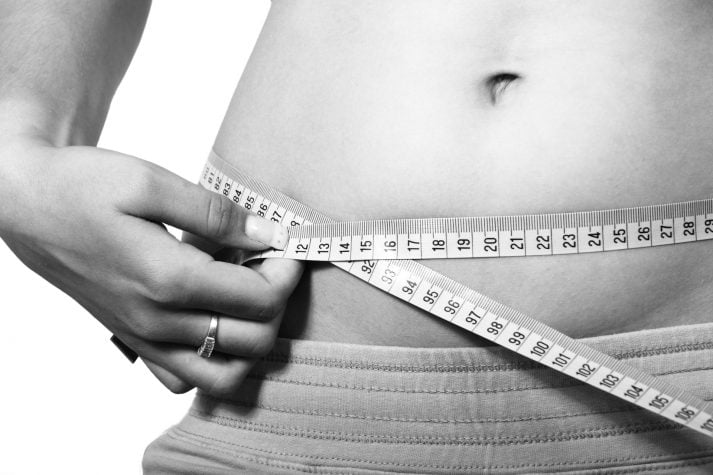
In the short term, the Military Diet will most likely cause you to lose weight. Why, you ask?
Because science.
It’s the reason “all diets work.”
If you eat more calories than you burn in a day, you will gain weight over time. If you do the reverse, and burn more than you consume, you will lose weight[1].
Granted, there’s some finer details in that equation. Muscle, fat, body fat, etc.
But for simplicity sake, it works.
The Military Diet works by practically guaranteeing you will burn more calories than you consume. If an overweight person who usually eats 2,500-3,000+ calories in a day, suddenly switches to ONLY eat 1,000 calories for multiple days in a row, their body will operate at a caloric deficit while it seeks the energy required for drills, push-ups, and cleaning the mess hall.
When this is repeated for a few days, the number on the scale will get smaller!
So will YOU (specifically you, in the green hat) lose weight? Depending on where you are now and your current intake, that deficit (and thus the accompanying weight loss) could be DRAMATIC.
But will you lose 10 pounds in one week like some sites claim? I highly doubt it. Unless you have 100+ pounds to lose and usually eat 5,000+ calories per day, you can only lose so much weight in a short time period.
Rome wasn’t built in a day. People don’t get overweight in a day. And people won’t lose all the fat they want to lose in a day either.
Here’s another truth bomb that needs to be said: Even if the number on the scale drops significantly in a week, most of it is water weight. Your body contains a lot of water, especially if you normally eat very salty, carby foods. So when you remove those foods from your system, the amount of water your body holds can decrease significantly too.
So if somebody strictly followed the Military Diet down to the calorie for a week they could lose maybe one to two pounds of actual fat. They could lose multiple pounds of water weight too, but that won’t continue from week to week.
ATTENTION!

It’s time to hit you with more knowledge: Any weight you lose while on the Military Diet will only remain lost if you stay on the Military Diet. This is super important and will be stressed again later.
Are there any benefits to the Military Diet?

Any kind of calorie restricted eating program, if adhered to consistently, will likely result in weight loss.
Remember that guy who lost weight eating Twinkies[2]? It worked because he made a strict protocol of his calorie requirements. Then, he followed it. Yeah, he filled a lot of his diet with junk food. But the point is he managed his food intake according to a plan to lose weight, and then stuck to it.
And it worked!
Before you get all mad at me, I too believe that the quality of calories is as important as the quantity.
One of the FEW things I like about the the Military Diet is that it provides a strict protocol to follow. You don’t have to worry about what to eat. It’s breakfast time on Day 2. That means you eat one egg, one slice of toast, and half a banana.
It’s the same reason why many people love the Paleo Diet or Intermittent Fasting or Keto Diet or the Mediterranean Diet: there are specific rules to follow that removes all guesswork from “what should I eat, and how much?”
I won’t lie to you and claim that a guide on what to eat has no benefits. Lying will get you court-martialed.
Hell, we even have our own free 10-level diet blueprint that tells you exactly what to eat to help cut out the guesswork (you can get yours when you sign up in the box below):
Download our free weight loss guide
THE NERD FITNESS DIET: 10 Levels to Change Your Life
- Follow our 10-level nutrition system at your own pace
- What you need to know about weight loss and healthy eating
- 3 Simple rules we follow every day to stay on target
But as your friend, I can’t give you only one side of the story.
Are There Any Drawbacks to the Military Diet?

DON’T DO THE MILITARY DIET!
Sorry, I’ve been holding that in this whole post. Literally. I typed this whole post up to this point whiile holding my breath so that I could then blurt this out.
I won’t deny that you could lose weight following the Military Diet. But can any diet telling you to eat bread, crackers, and ice cream actually be good for you?
I know you know better. You’re an adult with a good head on your shoulders, and you’re probably considering the Military Diet because you want a quick weight loss win without having to make any permanent changes.
Unfortunately, things like “science,” “thermodynamics,” and “reality” will keep getting in the way.
The Military Diet is what we in the fitness world call a “crash diet.” Crash diets are designed for quick weight loss in a short amount of time. These diets – and I can included “cleanses” here – prey on people’s desperation to “get fit quick.” They know that if you follow a short term diet, lose a bunch of water weight, and see a lower number on the scale – you’re convinced it worked and then you can go back to how you were eating before.
Then when you quickly put all of that weight back on…you’ll come running back to the diet that got you short term results. This is how they make their money, get your attention, and ultimately leave you sad and right back where you started.

Other examples of terrible crash diets include the Cabbage Soup Diet, the Baby Food Diet and just about any juice cleanse on the market. I won’t even link to them, that’s how annoyed I am about their existence.
The reason these diets are short term is because they are not sustainable. Can you eat nothing but cabbage soup for a week? Sure. For an entire year? No way.
Crash diets are temporary diets. Which means their results will be just that, temporary.
The Military Diet is extreme and short term. Why do people in the military do this to themselves?
Spoiler alert: they don’t.
Where did the Military Diet come from?
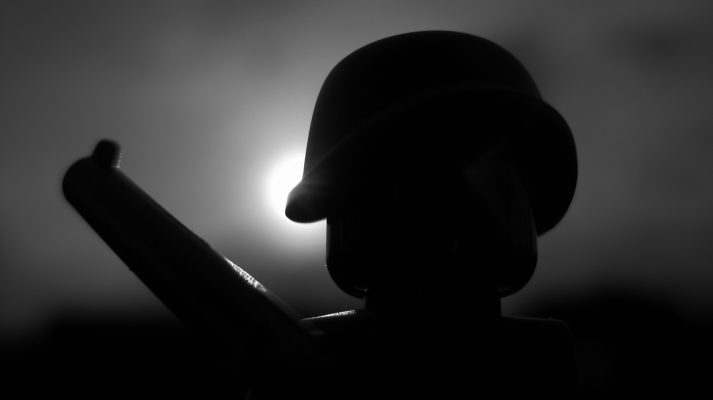
Here’s another crappy bit of info: The Military Diet has absolutely nothing to do with any branch of the Armed Forces.
As quoted in CNN, Patricia Deuster explained, “In my 30 years working with the military, I’ve never heard of it.” And she would know, because Deuster helped write the nutritional guide for the U.S. Special Operations Forces[3].
So if it doesn’t come from the actual military, where does the Military Diet come from?
This three days crash diet has gone by different names before, the Cleveland Clinic Diet 3-Day Diet, the Kaiser Diet, the American Heart Association Diet, and the Birmingham Hospital Diet[4]. Despite the different names, the three day meal plan is exactly the same.
And guess what?
None of the organizations claim to have created or support their namesake diet.
So where did it come from? Honestly, I don’t care.
It’s silly and I don’t need to meet the person who created a three day crash diet, that co-opts the military name to make itself sound reputable and legitimate.

Is the Military Diet safe?
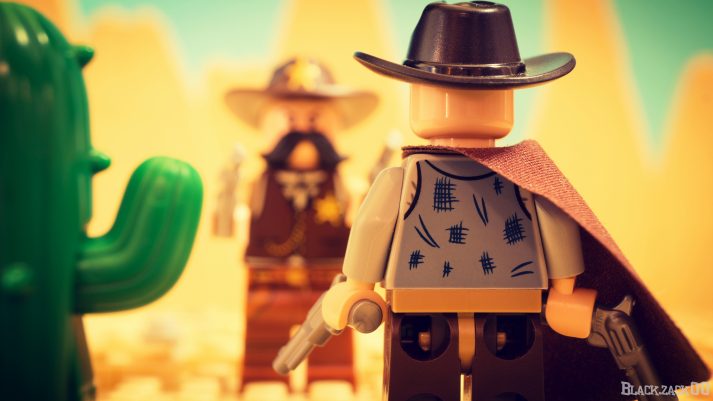
There’s nothing inherently dangerous about the Military Diet. It’s just eating unhealthy food in small quantities.
Which, depending on your current diet – could be a big improvement from eating unhealthy food in large quantities.
I don’t know you or your situation, but if you want to practice Karate kicks in the garage and become best friends, I’m down to clown.
Now, based on my 10 years of running Nerd Fitness, helping hundreds of thousands of people lose weight safely and in a sustainable way, I’m gonna tell you that this is probably not the diet you’re looking for.
Why? Because this diet will make you so miserable, and sticking to the portion sizes will make you so unhappy, that as soon as your 7 days are up, you’re gonna gorge yourself and probably end up even worse off than where you started!
This probably isn’t your first rodeo, nor is it the first quick fix you’ve sought out for weight loss. How have the previous attempts worked out for you in the long run?
I’m not saying this to be a jerk, but rather to make a point: I like you, your friends like you, and the world needs you to be the healthiest superhero version of yourself you can be.
And that will never happen if you keep chasing extreme short term diets.
I’d rather see you make changes you can stick with. Even if it’s one small change. Gradually reduce the calories you eat, by switching to REAL food. Things like veggies, fruits, and good quality meat. If you make one change, like eggs and avocados for breakfast, you’ll be making a great step in the right direction.
Small changes are something you can live with. Studies have shown that decreasing your caloric consumption by 25% can be fine for your mood[5]. Perhaps even beneficial. But dropping down to 1,000 calories? There’s no way that can, or should, be maintained.
I wouldn’t recommend you reduce calories by reducing the quantity of food, like ordering you to eat a meal of five saltine crackers, a slice of cheddar cheese, and one tiny apple.
Instead, I want you to make small changes to REAL food. That’s the ticket to long term weight loss. We’ve seen it over and over again here at Nerd Fitness.
Want help making the switch to REAL food? Not sure how to make all of that work in your busy lifestyle? I hear ya. It’s brutally difficult to stick with any diet, and that doesn’t even factor in when your kids get sick or work sucks or there’s two feet of snow on the ground.
It’s why we launched our 1-on-1 Online Coaching Program: to help create specific solutions and accountability for people that want guidance on how to eat, how to train, and the confidence to know they’re doing it correctly!
If this sounds like something that could help you, schedule a free call with our team to see if we’re a good fit for each other! You can do so by clicking on the big box below:

Frequently asked question on the Military Diet?
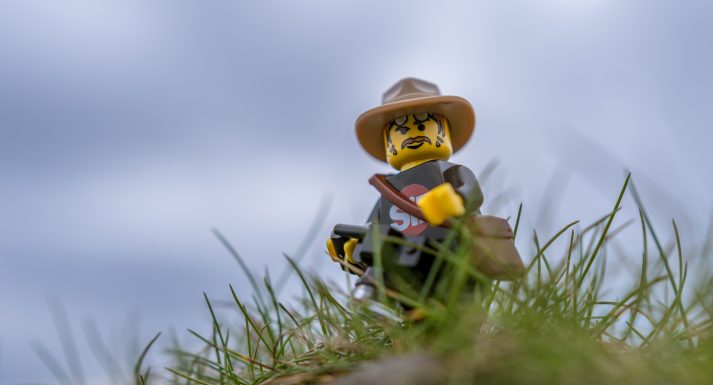
1) Do foods in the Military Diet help boost your metabolism?
There’s some debate on this. For example, can coffee help you lose weight by raising your metabolism? I’ll go with: unlikely. Any effect of caffeine to your metabolic rate isn’t enough to make a substantial impact[6]. If anything, it might act as an appetite suppressor[7]. Which isn’t nothing. But don’t count on it to raise your resting caloric expenditure like magic.
However, here are two things outside of diet that will help keep your metabolism high:
- Strength training. The more muscle you have on your frame, the more energy you will use at rest[8]. It’s one of the reasons we recommend it so much. I have no problem playing drill instructor and demanding push-ups.
- Stand up and move more. Any movement helps and even just standing up, outside of any walking, can help raise your metabolism[9]. A standing desk, for those long hours in the office, might be a good move.
Do either of these strategies, or better yet both. It’s better than relying on grapefruit powers to burn calories.
2) Will I enter starvation mode on the Military Diet?
Most likely not. Sure, if you go without food for a lonnnng period of time, your metabolism might slow down slightly, though this requires EXTREME nutritional restriction over a long period of time[10].
This makes sense from a evolutionary perspective. If there’s nothing to eat in sight, it might be that way for a while. After all, winter is coming…
Depending on how often you repeat it, the Military Diet might reduce calories to a point where this slow down of metabolism kicks in – but what’s more likely happening is that as you lose weight, your body doesn’t need to burn as many calories because there’s less of you to manage every day! So your metabolism WILL slow down as you lose weight, but it’s not due to you eating fewer calories in a day.
Now, some would say the climb up to 1,500 calories might help prevent this, but each person is different. My take: The fear of “starvation mode” is overblown, and it should be the least of your concerns while eating bread and ice cream and calling it a “diet”
3) Is the Military Diet a form of intermittent fasting?
Not really. Let me explain:
- The MIlitary Diet focuses on restricting calories at a specific meal, by counting the amount of hotdogs you can have, for example.
- Intermittent fasting centers on making a strategic decision to skip certain meals on purpose.
With intermittent fasting, you narrow the size of your eating window, or you occasionally do fasts of 24 hours. For instance, you can start eating at noon and finish up by 8pm, essentially skipping breakfast. I wrote all about it in our “Beginner’s Guide to Intermittent Fasting,” where I outlined the benefits of teaching your body to consume food more efficiently, and also reduces the total number of calories you are probably eating.
Conversely, the Military Diet teaches your body to run on hot dogs.
I’ve personally been utilizing intermittent fasting for three years. But I have never, nor will I ever, follow the Military Diet.
Shots fired.

If you want to try a strategic restricted eating program, you can sign up for our free Intermittent Fasting Starter Guide and Worksheets, by entering your email in the box below. We’ll make sure the guide gets sent to you.
Download a free intermittent fasting guide and worksheet!
- Complete outline of the Intermittent Fasting Protocol
- Worksheets for tracking when you eat and how long you fasted
Why you should not do the Military Diet, and What to do Instead.

We all want instant gratification. Unfortunately when it comes to fitness and diet, instant gratification will always fail you.
Short term changes only lead to short term results and heartbreak.
IF YOU ARE GOING TO DO THE MILITARY DIET: Godspeed, soldier. Good luck with your 7 days, and let me know how it goes in the comments below. My only request: use those 7 days to learn about yourself and nutrition (maybe by reading this post?), and do what you can implement permanent adjustments to how you choose to eat after.
I’d imagine most people who do this diet are hoping for a permanent fix with minimal work in just a few days time, and I’m here to caution you against that line of thinking.
LIFE DON’T WORK THAT WAY.
DON’T DO THE MILITARY DIET. DO THIS INSTEAD:
- Eat real food when possible.
- Eat a damn vegetable every once and awhile. Yes, even if you hate them.
- Cut out liquid calories like soda and juice (they’re both sugar water). Drink water, black coffee, tea.
If you can eat real food, minimize liquid calories, and eat veggies, and do so consistently for months and months – you’re going to have permanent success.
Making these changes too tough to do permanently? Change fewer things!
Start thinking in terms of “days and years,” not “weeks and months:”
Try one meal, based on REAL food. Forget the crackers and ice cream.
If you want a strict diet to follow with rules, create your own. Or find one that already exists.
Try Keto. Or intermittent fasting. Maybe Paleo. Or Mediterranean.
But don’t waste your time with the Military Diet or any other crash diet. Instead make lasting changes like I lay out in that video above.
If you read all of this and you’re overwhelmed, and you’re just looking for guidance on how to eat for your situation, you’re not alone! We had so many people ask us for specific advice that we built an Online Coaching Program to help them get results.
Our professional coaches are regular people like you, with families, hobbies, and struggles – but they spend all day helping busy people like you live better, lose weight, and feel better about themselves. No more temporary changes, instead, it’s small steps that are sustainable, forever. And that get you results that actually stick.
If you’re like “hey I want somebody to tell me what to do,” schedule a free call with our team to learn more by clicking in the big box below:
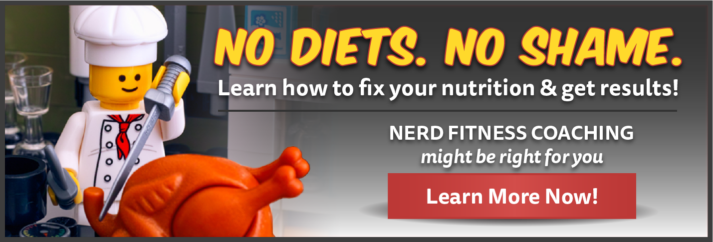
Back to the post: You don’t need to do the Military Diet.
The people in the military certainly don’t.
INSTEAD, YOUR MISSION, SHOULD YOU CHOOSE TO ACCEPT IT:
- Cut back on your liquid calories. If it’s not water, tea, or coffee (black), try cutting back in a deliberate fashion. Switch to diet sodas. Switch to coffee instead of lattes. Realize that juice is just sugar water.
- Prepare one healthy meal. Consider my healthy go-to option. Just make sure it has a vegetable, okay? Don’t overthink this.
If you can do those two things this week, and then repeat that week after week, you’ll be 10X better off a year from now than if you had followed the Military Diet for 7 days.
And lastly, remember, THE MILITARY DIET HAS NOTHING TO DO WITH THE MILITARY!!!
Ahem. Any questions?
-Steve
PS: As alluded to earlier, I have no problem if you follow the actual diet recommended by the military. Check out their guide for Special Operations Forces here. But those folks work out A LOT. Adjust your caloric intake accordingly.
PPS: And if you already did the Military Diet, please drop and give me 20 push-ups  Just, make sure you’re doing them correctly!
Just, make sure you’re doing them correctly!
ALL Photos Sources can be found in this footnote here[11].
Footnotes ( returns to text)
- Check out the study on a caloric deficit leading to body fat loss here
- Read the article on CNN here
- Check out the CNN article here and the nutritional guide here
- Links to the these crash diets can be found here, here, and here
- Check out that study here
- Check out that study on coffee here
- Study on coffee and appetite found here
- Study on muscle and metabolic rate found here
- Study on standing up and metabolism here
- Study on starvation and metabolic rate found here
- patrolling, pushups, grapefruit, tape measure, sniper, caution, soldier, quick draw, cameraman, beach


























 Just, make sure you’re doing them correctly!
Just, make sure you’re doing them correctly! For now classes are 6pm and 640pm at 2840 Wildwood st in the Boise Cloggers studio.
Book your class NOW!
click this ==>
For now classes are 6pm and 640pm at 2840 Wildwood st in the Boise Cloggers studio.
Book your class NOW!
click this ==>








